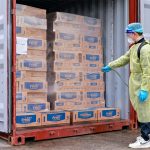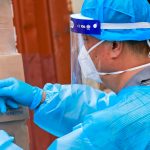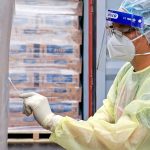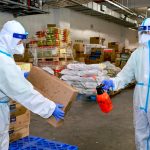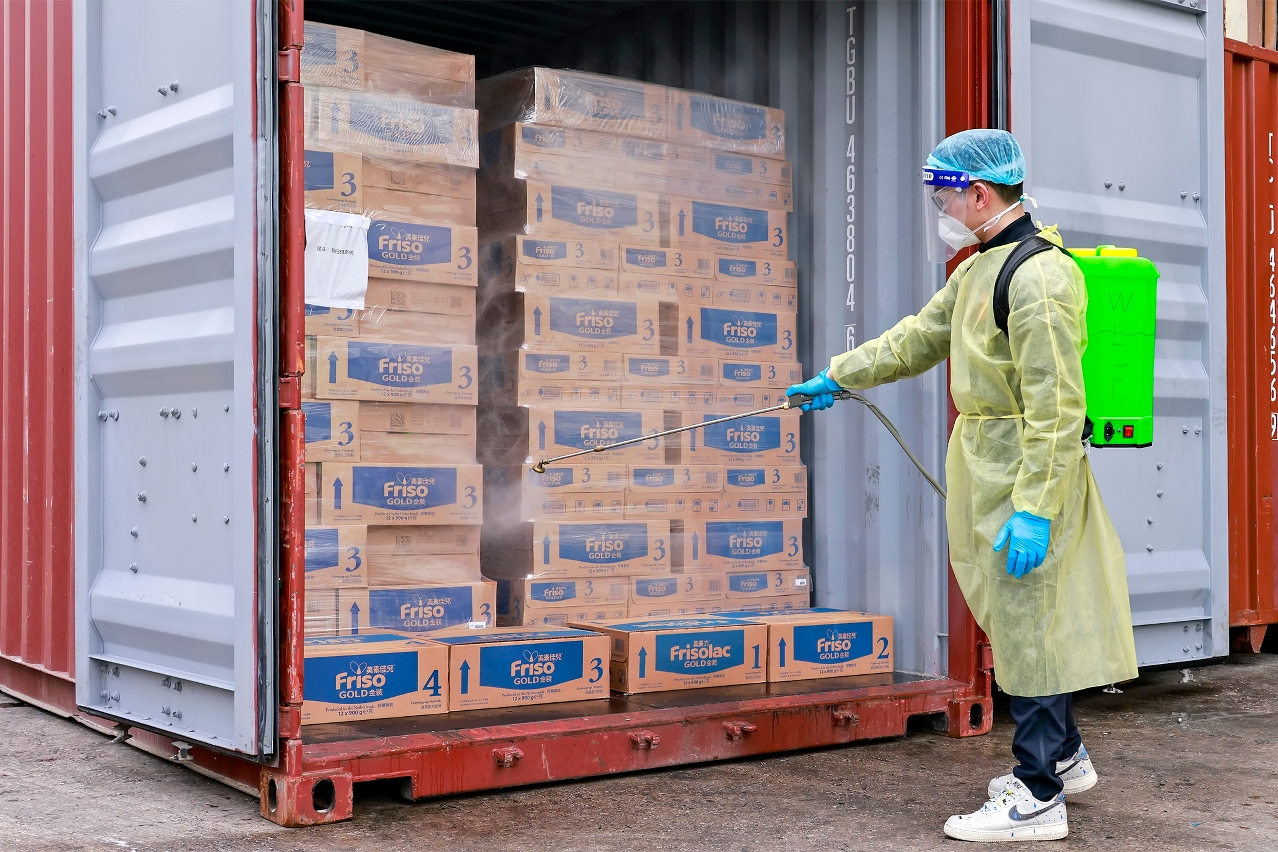 To step up anti-epidemic effort, the Government enforces stringent disinfection guideline on imported goods and cold-chain products on arrival in Macao.
To step up anti-epidemic effort, the Government enforces stringent disinfection guideline on imported goods and cold-chain products on arrival in Macao.
Macao has put in place a set of stringent anti-epidemic measures, especially relating to disinfection of goods and cold chain food imported to Macao, in order to minimise the risk of COVID-19 being brought into the city via imported products.
The Macao Customs Service, the Municipal Affairs Bureau, the Economic and Technological Development Bureau, and the Health Bureau, along with other relevant public departments, hosted a tour for the media, to help reporters get a better understanding of the Government’s anti-epidemic effort.
A representative of the Macao Customs Service said supervision – in terms of anti-epidemic control regarding goods imported from outside – had been strengthened, and was being strictly carried out under the approach “preventing COVID-19 from re-entering and causing a new epidemic”, and in light of the volatile epidemic-related situation in neighbouring places.
On arrival, imported goods would be disinfected thoroughly. Disinfected goods would then be marked with a special sticker and recorded in a manifest. Disinfection work had to be carried out in areas with surveillance cameras, in order to ensure efficiency of supervision by the Government.
In addition, the Customs Service has strengthened its inspection and supervision work on import-related activities, with a view to combatting unlawful trading, and to prevent unsterilised goods from being transported into Macao.
When speaking to reporters, a Municipal Affairs Bureau official said the authorities had enhanced inspection of a number of facilities, such as the airport, ferry terminals, refrigerated warehouses, cold chain processing venues, retail frozen-food establishments, and shops selling fruit.
There was a weekly aggregate of 100,000 or more boxes of cold chain food and fruit imported to Macao. The number of boxes sampled daily for screening purposes had been increased to 500. As of 15 March, a total of 17,800 food-related and environmental samples had been collected.
On 14 March, a sample of plastic wrapping film used on the external packaging of a batch of dairy products imported from Hong Kong, had tested ‘positive’ for the presence of COVID-19 virus. All the products concerned had been sealed and destroyed, and had therefore not entered the market.
A representative of the Economic and Technological Development Bureau told reporters taking part in the tour that there had been a requirement – since early March – that imported goods from Hong Kong undergo additional disinfection after outer plastic wrapping had been removed.
To ensure public safety, the authorities had met with suppliers and supermarket operators to inform the trade to arrange for their stock clerks to undergo a nucleic acid test every seven days, as directed by the Health Bureau. The first test on all individuals covered by the requirement had to be completed by Saturday (19 March).
The Health Bureau issued a reminder that members of the public should wear a protective face mask and disposable gloves when unpacking imported goods. People should unpack such products outdoors: external packaging, such as cartons and boxes, should not be taken home. If the process of removing goods from boxes had to take place in the home, such containers should be disinfected with either a one-part water, half-part bleach solution, or with either a 70-percent or 80-percent isopropyl alcohol solution.


